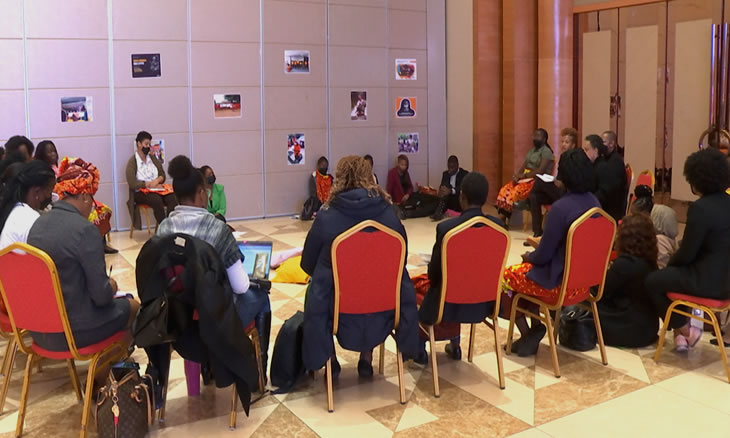Mozambique: Over three million children to be vaccinated against polio in Zambézia
Women activists warn against attempt to make adultery official in Mozambique

Activists and women’s organizations say that discussions about polygamy in the country are the result of poverty and an attempt to institutionalise adultery. They argue that, even in the Muslim religion, there are rules for polygamy, and not everyone is able to comply with them.
Last weekend, Muslim women in Zambézia were heard agreeing to ‘share’ their husbands with one or more other women, fuelling renewed discussion about polygamy in the country.
ALSO READ: Mozambique: Sheik Umar advocates polygyny following the rules in the Qur’an – report
Listening to women gathered at the Lusophone African Feminist Forum in Maputo, ‘O País’ heard Mozambican Graça Sambo say that some women are influenced by the groups they belong to.
“In our societies, it is very normal for women to be manipulated to the extent that they come into the public space defending positions that are of interest to a certain congregation,” said Sambo, immediately clarifying: “I do not want to belittle the fact that there may be women who, from their own free choice, want to live in such a scenario.”
For Fátima Mimbire, the issue of polygamy affects women’s rights and, even in Islam, it is not enough to want; one needs to be able to support more than one woman.
“In the Islamic religion, for a man to practice polygamy means that he has the financial resources to treat his four wives, including his four children, equally. I don’t know how, in the context in which we live, in which parents can barely support their children in a monogamous relationship, they will be in a condition to give the same lifestyle to so many wives and children,” Mimbire said.
There is also, she added, some confusion between polygamy and adultery.
“These discussions reveal that people wish to make ‘mistressism’ or adultery official. If we look at the doctrine behind polygamy, it is clear that this doctrine is a system that assumes that there is knowledge of this reality. That is, the polygamist assumes himself as such from the start, and not the other way around,” she explained.
Maria Gonçalves, vice-president of the Cape Verde Association for the Fight Against Gender-Based Violence, declared against polygamy, justifying her position as follows: “I’m not pro-polygamy, because I think relationships should be based on respect, reciprocity and loyalty. When these elements do not exist, things are unlikely to work out.”
Guinean Elisa Pinto, distinguished by the United Nations and the African Union as one of 20 women fighting for the pacification of the continent, said that, in Guinea Bissau, the practice is accepted in the Muslim environment, but that, outside this environment, such situations are “not about polygamy, but about violence against women and their children. It’s typical of men who don’t settle for what they have at home,” she said.
In this scenario, Graça Sambo took the opportunity to share some advice for women. “Think twice before getting into a relationship. It is necessary to negotiate the conditions of this relationship, its modalities and the responsibilities that fall upon each person that makes up the couple. Also, do not get involved in a relationship where there is an already constituted family,” she counselled.
The activists were speaking on the sidelines of a two-day Lusophone African Feminist Forum which ends this Tuesday (19-04) in Maputo.
By Raúl Massingue













Leave a Reply
Be the First to Comment!
You must be logged in to post a comment.
You must be logged in to post a comment.